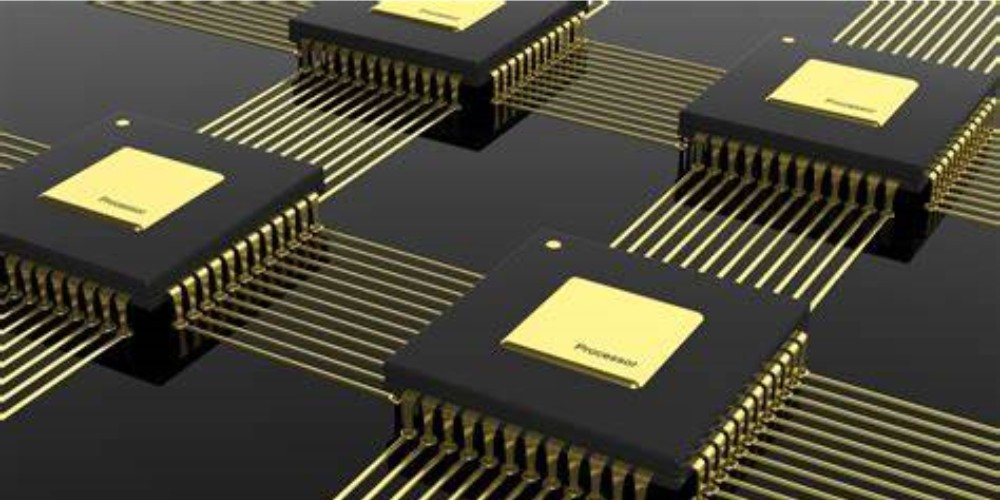Integrated circuits or IC chips have fundamentally transformed the electronics industry since their invention in the late 1950s. Before their advent, electronic devices relied on bulky and inefficient discrete components. However, the introduction of IC chips revolutionized this landscape by condensing multiple electronic components onto a single semiconductor substrate.
This miniaturization not only drastically reduced the size of electronic devices but also enhanced their performance, reliability, and energy efficiency. From computers and smartphones to medical devices and automotive systems, IC chips are ubiquitous and can be sourced from a perfect IC Chips Supplier like Rantle that will empower the modern world.
What do you know about the Birth of IC Chips?
The concept of integrating multiple electronic components onto a single semiconductor substrate was conceived by Jack Kilby at Texas Instruments and independently by Robert Noyce at Fairchild Semiconductor in the late 1950s.
Kilby’s breakthrough came in the form of the first working IC chip, which contained a handful of transistors and capacitors connected by fine metal wires on a small piece of germanium. This innovation laid the foundation for the miniaturization revolution that would follow.
What do IC Chips do?
IC chips serve as the backbone of modern electronics, performing a multitude of functions within electronic devices. They consist of tiny semiconductor components such as transistors, resistors, and capacitors integrated into a single silicon substrate. IC chips process, store, and transmit electronic signals, enabling tasks such as computation and data storage, etc.
From microprocessors in computers to sensor arrays in smartphones and control circuits in automotive systems, IC chips facilitate the functionality and connectivity of a wide range of electronic devices, driving innovation and shaping the digital landscape.
Role of IC Chips in the Electronics Industry
Integrated circuits or IC chips stands as a testament to the relentless pursuit of innovation within the electronics industry. Let us discuss the profound impact of IC chips on the electronics industry:
- Miniaturization and Efficiency
One of the most significant contributions of IC chips to the electronics industry is their ability to condense complex circuits into tiny packages. By integrating transistors, resistors, capacitors, and other components onto a single silicon chip, ICs drastically reduced the size and weight of electronic devices while simultaneously improving their performance and efficiency.
This miniaturization enabled the development of portable devices such as calculators, digital watches, and eventually, smartphones, which have become indispensable parts of modern life.
- Advancements in Computing
IC chips played a pivotal role in advancing computing technology. Early computers relied on bulky vacuum tubes and discrete components, limiting their speed, reliability, and scalability. However, the introduction of IC chips revolutionized computing by enabling the creation of smaller, faster, and more powerful machines.
The transition from discrete transistor-based logic to integrated circuits paved the way for developing microprocessors, memory chips, and other essential components of modern computers.
- Expansion of Communication
The proliferation of IC chips also revolutionised communication technology. From the miniaturization of radio transceivers to the development of sophisticated networking equipment, ICs have been instrumental in connecting people and devices across the globe.
The integration of complex communication protocols and signal processing algorithms onto single chips has enabled the creation of smartphones, tablets, and other connected devices that facilitate seamless communication and data exchange.
- Diversification of Applications
The versatility of IC chips has led to their adoption in a wide range of applications beyond traditional computing and communication. ICs power advanced driver assistance systems, engine control units, and infotainment systems in the automotive industry, enhancing vehicle safety, efficiency, and entertainment.
In healthcare, ICs play a pivotal role, enabling the development of essential medical devices such as pacemakers, insulin pumps, and diagnostic equipment. This revolutionizes patient care and treatment, ensuring accuracy, efficiency, and improved outcomes in medical interventions and therapies.
- Challenges and Opportunities
Despite their numerous benefits, IC chips also pose challenges related to reliability, power consumption, and environmental impact. The constant demand for smaller, faster, and more energy-efficient chips drives innovation in semiconductor manufacturing, materials science, and design methodologies.
Emerging technologies such as three-dimensional integration, photonic integration, and quantum computing hold promise for further advancing the capabilities of IC chips and shaping the future of the electronics industry.
- Cost Reduction and Customization
The mass production of IC chips has significantly reduced manufacturing costs, making electronics more affordable and accessible to consumers worldwide. This has democratized access to technology, empowering individuals and businesses alike.
IC chips can be tailored to specific applications, allowing for the development of specialized devices optimized for particular tasks. This customization has fueled innovation in areas such as automotive electronics, industrial automation, and consumer electronics.
Final Wording
IC chips have indelibly transformed the electronics industry through miniaturization, efficiency, and versatility. From powering smartphones to enabling space exploration, their impact spans across sectors, driving innovation and shaping the digital age. IC chips remain pivotal in advancing technology, propelling us towards a future of boundless possibilities.





